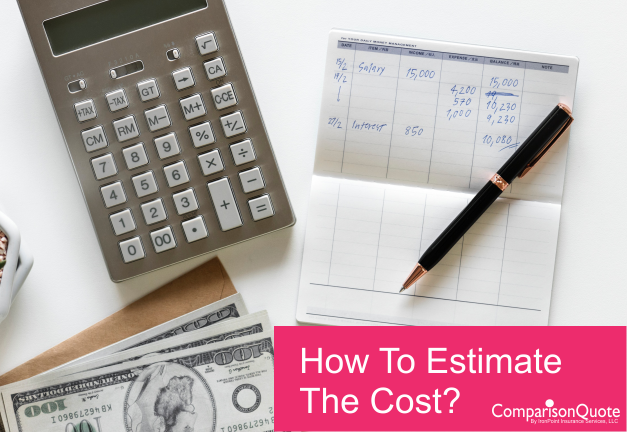How Do Insurance Companies Calculate Auto Insurance Premium?

Car insurance isn’t a one-and-done deal. Rates change, you age, move your home, change cars and discounts can be added or removed. Basically, it’s a dynamic relationship between the rating variables used to calculate premiums and your profile. To best understand how to save money on car insurance you first need to understand how an auto insurance premium is calumniated.
Without getting to “wonky,” auto insurance premiums are determined by many variables based on items derived by the drivers, vehicles, loss and accident history, prior insurance experience, and in some cases data from your consumer credit record discovers about the insured and the listed drivers
There are so many combinations of rating variables, that a single insurer could have over 1 million ways to rate car insurance. When you consider that not all insurance carriers rate the same way, you begin to realize that the possibilities are extreme.
Because there are so many ways to rate a policy, and you can’t possibly be able to know all the meaningful differences, using an online quoting tool is an excellent way to compare insurance premiums.
Differences in rates among car models
Not all car models are created equal. If you’re in the market for a Tesla, for instance, insurance companies won’t treat you like they would if you were the buyer of a pre-owned Honda Civic.
For one thing, with more expensive vehicles come pricier insurance packages. Insurers may assess risk differently, but higher-end cars are more susceptible to theft and damage. Insurance companies will often seek to cover the entire retail cost of a car should it be stolen or irrevocably damaged in a collision.
Owning a car with better safety ratings, or one which might be more reliably protective of drivers and passengers, will help lower insurance costs. Drivers of “riskier” vehicles may otherwise be in jeopardy. Increased risk of injury will likely lead to higher premiums.
Do you know what your car is made of? You should—some models are manufactured with special (and expensive) materials that are difficult to repair. Insurers might raise your premium if you own a vehicle of this type, anticipating the higher cost of damage claims.
What other factors will impact my insurance rates?
If you’re shopping around for a new policy, it’s especially important to know all the variables that make up your driver profile. Each insurer assesses risk differently, so these aspects might be weighed differently as well. Regardless, the following groups of factors should be taken into consideration as you explore different car insurance options.
- Type of insurance needed. Every state in the U.S. requires that you buy, at least, state minimum liability coverage. There are higher-threshold (and more expensive) options, including a) wider liability coverage for at-fault claims and b) collision and comprehensive insurance, with liability coverage also included. Your deductible is also not set in stone for collision and comprehensive insurance—the higher deductible you pay, the more you’ll end up saving.
- Personal life. Your gender, age, geographic location, marital status, and the number of licensed drivers in your household will all impact your insurance premiums. True, most of that can’t be helped. But it’s especially important to re-evaluate your car insurance needs after a major life event—a marriage, birth, or location change—because your premiums could drastically change as a result.
- Vehicle features and use. We have seen how the type of vehicle you drive might impact your insurance rates. (Unlucky news for you if the model you drive happens to be crashed a lot by new drivers.) But the amount you drive, and for what purpose you drive it, also has an effect. Those using vehicles for commercial use, long-distance commuters, and frequent twilight travelers, beware: you might see higher rates come your way. If you use your personal vehicle as an Uber or Lyft, however, most major auto insurance carriers have expanded rideshare insurance options.
- Historical factors. Many variables related to your financial history and driving record will, unsurprisingly, impact your profile as an insurance shopper. Your credit score, driving record, and claims history (for both at-fault and comprehensive) are all important factors that insurers will analyze to determine your rates. Additionally, high frequency of claims will lead insurers to believe that you are a high-risk driver, potentially raising your premiums for a couple of years. Lapses in coverage in your history will also lead to higher rates, so make sure that you’re insured at all times—you could have been breaking the law by driving without insurance in the past.
Shopping for car insurance
Comparison shopping is the bread and butter of the 21st-century online marketplace. Now that you know all the factors that go into an auto insurance quote, the insights garnered from a car insurance estimator probably seem pretty intuitive. But there are multiple carriers out there, looking to charge you different rates for similar packages. How to choose between quotes?
Shopping around for car insurance is easy if you have the right tools. In just 2 minutes, you can find quotes from up to 10+ companies and compare their rates, if you use an online comparison quote site. Buying a new policy? The purchase can be done 100% online if you want, and in only 5 minutes.
Our easy-to-use application allows you to quickly and easily compare quotes. We’ll list the cheapest options that fit your needs and driver profile, based on all the factors outlined above. Who knows, maybe you’ll unlock a rate that’s even cheaper than the estimate you found on the Car Insurance Calculator.
With both the auto insurance calculator and intuitive comparison shopping platform, it’s now easier than ever to assess and decide between your auto insurance options.
Compare Quotes
Want to know if you can save on home or auto insurance? See for yourself. Start a quote today.
Subscribe to Our Newsletter
